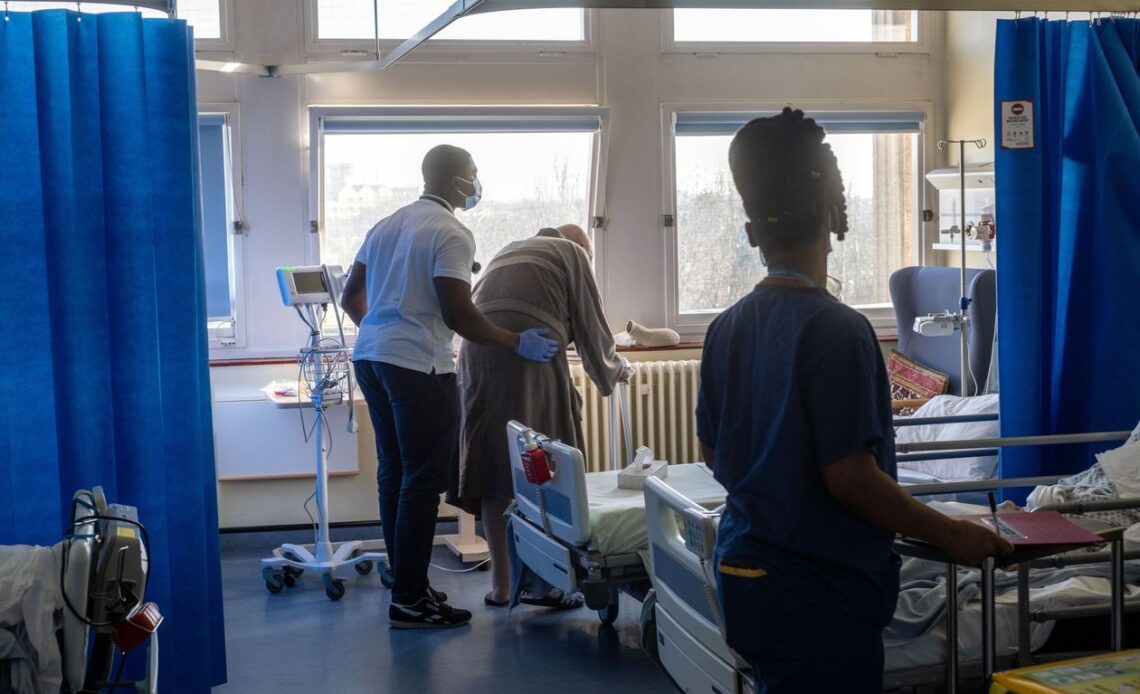For more than a decade, the British government has run its National Health Service, the world’s largest government-run healthcare system, on a tight budget. The NHS prided itself on being one of the leanest healthcare systems in the developed world, spending less per head on average than its large European neighbors—and far less than the U.S.
Now the state-funded service is falling apart. People who suffer heart attacks or strokes wait more than 1½ hours on average for an ambulance. Hospitals are so full they are turning patients away. A record 7.1 million people in England—more than one in 10 people—are stuck on waiting lists for nonemergency hospital treatment like hip replacements. The NHS on Monday faced the biggest strike in its history, with thousands of paramedics and nurses walking out over pay.
The NHS’s woes are an extreme example of issues playing out across the developed world. Healthcare systems, hit hard by Covid, are under pressure as people live longer and have a wider range of treatment options. Aging populations mean costs will keep growing. The U.K.’s experience is a warning of what happens when supply in healthcare provision can’t keep up with demand.
“The healthcare system in the U.K. is facing a crisis like no other I have seen in my career,” said Nigel Edwards, the retiring chief executive of the Nuffield Trust, a healthcare think tank, and former chief executive for the NHS. “The U.K. has mistaken cheapness for efficiency in its approach to health, and it’s coming home to roost.”
The NHS has lost thousands of hospital beds in the past decade in its drive for efficiency. Covid delayed treatments for patients, resulting in a vast waiting list. Hospitals in England were already at 98% capacity in December when the brutal flu season began to take hold. The mass of sick patients gummed up the system to devastating effect.
An NHS hospital ward in London, Jan. 18.
Photo:
Jeff Moore/PA Wire/ZUMA PRESS
Delays in treating people are causing the premature deaths of 300 to 500 people a week, according to estimates…
Click Here to Read the Full Original Article at WSJ.com: World News…

